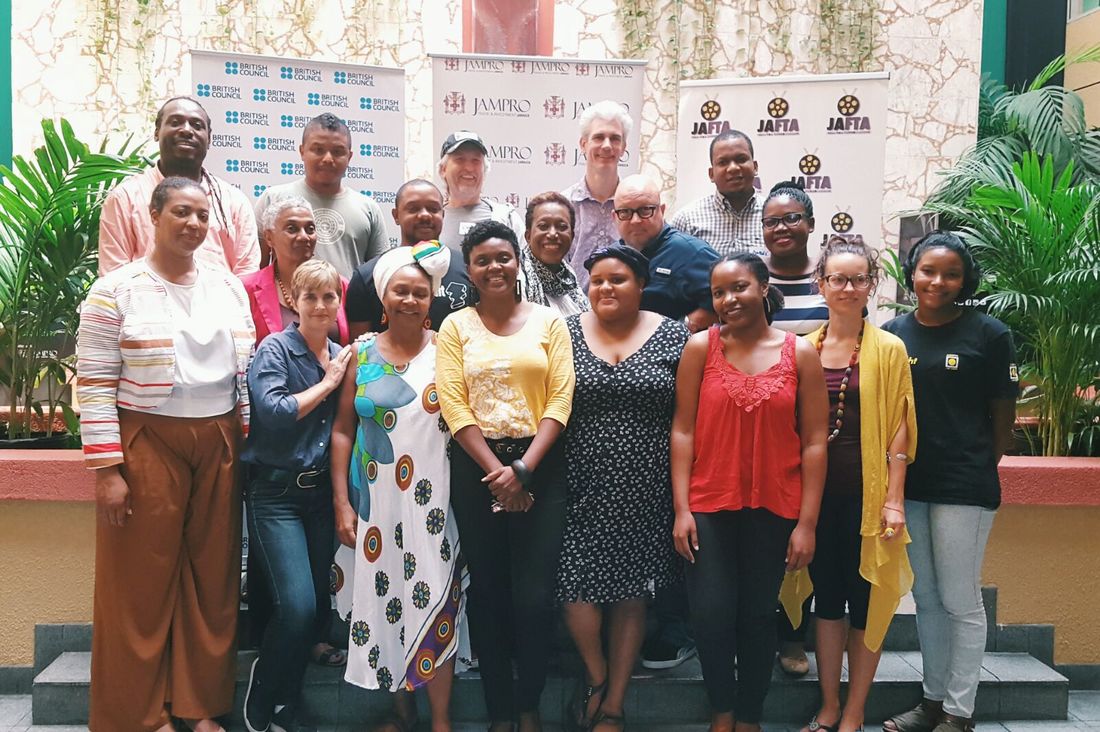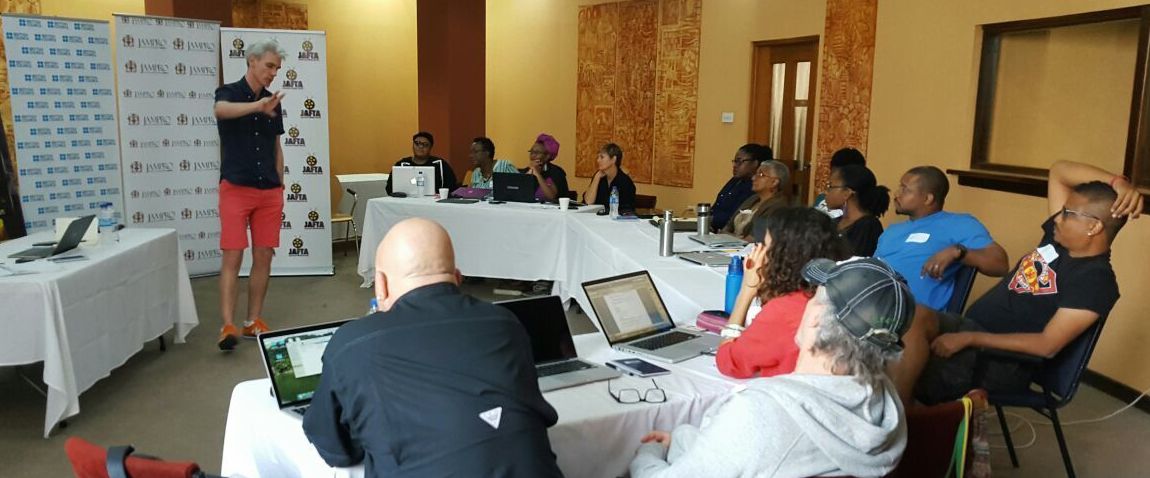 If an idea for a story is a seed then when watered it sprouts roots in the form of a script. Without these roots a movie cannot grow. Therefore the very first step one must take in creating a piece of art one can show on a big screen or air on a television is to write a good screenplay. But after a good screenplay is created it needs further nutrients to grow. "Script development" is the soil that provides a script with all the elements it needs to be a strong and healthy film. Enough of the puns, let’s talk about the “Making Development Work” Script Development workshop put on by The British Council Caribbean (BCC), Jamaica Film and Television Association (JAFTA) and the Jamaican Promotions Corporation (JAMPRO). I’ve been to several workshops of different kinds and the honest truth is this is one of the few I’ve been to that was actually a workshop. Most I have been to were more “Talk Shops” where the instructor merely goes in detail step by step into a process but you seldom get to actually practice or simulate it. The other thing that is typical of a workshop is the instructor telling you there is only one way of doing things. This was entirely different. Not only was this workshop practical, it was also very organic and non-invasive. Ludo Smolski is a Script Development Consultant from London with decades of experience in the UK Film Industry. He is a Script Consultant who does Script Reading, Script Development and designs & teaches Script Development courses. On top of it all he was a seriously nice guy, with a great sense of humour and a great appreciation for Jamaica and its culture. We could not have been in better hands. The 5 days of the workshop started on a holiday…YES on a holiday…Ash Wednesday. The dedication was immediately evident as all 14 participants showed up not just on time but ahead of time to start the day off right and dispel the myth that all Jamaicans run on Caribbean time. Each day consisted of theory in the morning a lunch break and then a practical exercise to emphasize what was learned. This was achieved through role playing, developing analysis reports, outlines, simulated development meetings, reading several scripts, breaking down scripts and breaking down scenes just to name a few. In some cases we got homework which was reviewed the next day. It was back to school again for everyone…literally. We covered everything from Dialogue, to Plot, to patois in films. Interestingly Ludo saw no issue with patois being in films which is in stark contrast to Hollywood Director Joel Zwick who did “My Big Fat Greek Wedding”. He told the Jamaica Gleaner "There is an enormous audience that would like to find out about Jamaican stories, Jamaican culture, but they're not gonna do it as a foreign film, reading subtitles. That won't happen." http://jamaica-gleaner.com/article/entertainment/20170130/patois-script-prablem-man. Ludo pointed out there are far too many successful examples of subtitled films out there for him to see it as a disadvantage. He admits there are situations like distributing to the North American markets that may require a strategy to gain acceptance with dialogue but he stated strongly that if the visuals of the film tell the story, then dialogue really will not pose a problem. Another option he recommended if we chose to go the modified patois root is to write the dialogue in such a way that sounds understandable in English but also sounds Jamaican. This can be achieved by speaking English but using an accent, similar to the way we hear Romans, Africans or Germans talk in films. Germans do not speak English but the audience believes they are authentically German when they hear them. The point is, he would rather we not remove the “Jamaican-ness” from the film if it adds to the authenticity of the story. How we represent that is up to our creativity. Enough of the cultural banter, let’s get to the crux of the matter. The workshop ended on Sunday March 5 and everyone left feeling very empowered. Tired…but empowered. Ludo encouraged us all to stay in groups (which he assigned) and continue to develop our scripts to meet their full potential. The team committed to this as the benefit was obvious. I know some are going to ask, “But what happens after…are you going to get the films made?” Great question and the answer is “One step at a time.” This step is a very crucial step in the journey up the hill. We will not get there in a single bound but this surely elevates us. With the combination of projects like Propella giving filmmakers $500,000 each to make 10 minutes films for regional and international consumption in the film festival circuit and this script development workshop, Jamaica is putting itself on the right track. The British Council is very willing to help the Caribbean boost its creative industries and one thing they do very well is making connections that can assist us. This I believe is the first of many good things to come.
1 Comment
|
AuthorI am a Filmmaker, Animator and Writer. I love telling stories and making them come true. You will see me on the big screen soon enough. Archives
November 2019
Categories |


 RSS Feed
RSS Feed
